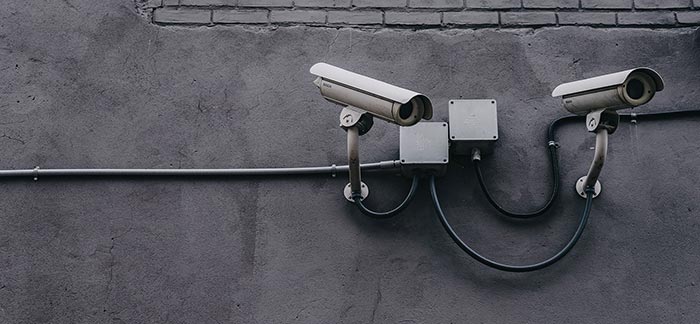Technology is great. It makes everyday tasks easier and allows us to reach people far and wide. However, sometimes we take advantage of the conveniences of modern technology and forget to take the extra steps necessary to ensure we’re protected.
Along with advancing technology comes advancing hackers and identity thieves. Here we would like to provide you with tips on how to protect your personal and financial information off and online.
Secure Finances: Keeping Your Information Secure Offline
- Lock up your documents – Keep your financial documents in a secure place such as a lockbox or locking filing cabinet at home. Don’t keep account numbers in easily visible places where visitors might see them. This includes checkbooks.
- Shred or burn your unneeded documents – Shred receipts, credit card offers and applications, checks, bank statements, and similar documents if they are no longer needed. If you’re having a bonfire, toss them in! Simply throwing them in the trash is not recommended.
- Opt for the post office – If you do not have a locking mailbox, take outgoing mail to the post office or utilize mail drop-off boxes; also promptly remove new mail. If you’re going away for an extended period of time, request a vacation hold on your mail. If you are ordering new checks or credit/debit cards, ask to pick them up at your bank or post office instead of sending them to your home (again, unless you have a locking mailbox.)
- Only carry what you need – Your purse and wallet are relatively easy targets for people wanting to steal identities. When heading out only take the identification, credit card, and debit card that you need. Keep everything else safe at home. You can also even purchase wallets that are made to block identity thieves’ RFID scanners. For more information on the best and worst things to carry with you in your wallet check out our blog To Keep or Not to Keep (in Your Wallet) – That Is the Question.
See what you’d pay for life insurance
Keeping Your Information Secure Online
- Use encrypted websites – Anywhere online that you bank or shop (or have to enter personal information) be sure to double check that the website is “https” and not just “http”. The “s” indicates that it’s a secure site and will encrypt the information you submit. There should also be a padlock icon on the search bar of your internet browser as well. (Just look up to where the URL for Quotacy.com is and you’ll see what I mean!)
- Keep passwords unique and private – Don’t have the same password for all your online accounts and don’t make it something easy like your last name or “password123”. Try to mix letters, numbers, and special characters when creating passwords. If you don’t think you’ll be able to remember passwords such as “gTpf$54!x” trying creating a password from a phrase you are more likely to remember. For example, the phrase “I love to read Harry Potter books!” turns into “Il2rHPb!” Also, do not write your passwords down and leave them for people to easily find or store them in a “Notes” section on your cell phone.
- Don’t fall for scam emails – If you ever receive an email asking to respond with personal information such as account numbers or passwords, delete the email and block the sender. Even if the email looks like it’s from a company you’re familiar with, a legitimate company will not ask you for private account information in this way. Don’t click the links in these emails either – if you want to check to see if the email sender it legit, instead type the company name into your web browser and contact them through customer service.
- Delete personal information from electronics before disposing – If you plan on disposing or selling an electronic device such as a computer or cell phone, wipe the system clean before you do so. Check the owner’s manual if you aren’t sure how to do so or search the internet for a how-to guide.
- Don’t overshare on social media – Social media is chockful of information about us and unfortunately identity thieves use this to their advantage. You’re probably familiar with “challenge questions” on different online accounts. A favorite one is “Where did you attend high school?” Can someone easily find this information on your Facebook account? I’m not saying you need to go delete your account, but just be aware of what information you’re putting publicly online and which privacy options you’re using on your different social media accounts.
It’s wise to regularly check your credit reports for any potential signs of fraud. If something on the report doesn’t seem right, call one of the credit reporting agencies (TransUnion, Experian, Equifax) and ask for an initial fraud alert on your credit report.
A fraud alert on your report notifies lenders and creditors who pull your report to take additional steps to verify your identification before they open lines of credit or loans. This will help prevent the identity thief from causing further damage. This alert will stay on your report for 90 days, but you can always renew it if necessary. Putting these tips to good use will help you to hopefully never be a victim of identity theft.


0 Comments